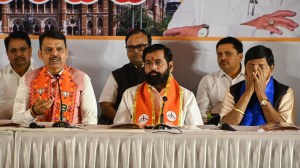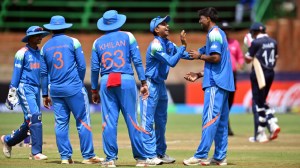For NCERT, only grades make mark
The National Council of Educational Research and Training NCERT has initiated a move to do away with the marking system and introduce grad...

The National Council of Educational Research and Training NCERT has initiated a move to do away with the marking system and introduce grades in schools.
Speaking to The Indian Express, NCERT director Professor J.S. Rajput said awareness and acceptance are essential in making this process successful. 8216;8216;As an advisory body, the NCERT has discussed this issue on a national level and it will be carried out in phases.8217;8217;
Representatives of 20 boards of education from different states, who attended the first consultation organised by the NCERT on the draft national examination reforms framework, agreed that a phased movement towards the grading system was most desirable.
The NCERT had originally recommended a transfer to the grading system in 1994 and the CBSE had followed suit in 1999. At present, however, only CBSE and the Council for Society of Indian School Certificate Examination follow the grading system simultaneously with awarding of marks. 8216;8216;We have initiated relative grading alongside grading in absolutes till Class 9 and would like to stretch it to the board classes. It is important to introduce the grading system as in the present system there is a lot of misclassification. This system makes us presume that a student getting 92 per cent is more intelligent than the student who has got 89 per cent. It is subjective,8217;8217; said CBSE chairman Ashok Ganguly.
The CBSE has also asked its schools to consider 8216;8216;Continuous and Comprehensive Evaluation8217;8217; upto class V. This system allows the student to be graded on the basis of multiple tests, physical tests and other criteria like punctuality and regularity.
A consensus was also reached on the need for creating an appropriate climate to facilitate movement to the grading system. The NCERT has offered to start training programmes to key resource persons from the states.
While four state boards 8212; Kerala, Manipur, Goa and J-K 8212; said their transition plans are ready, other states said they would be in a similar position within a few years.
The states whose boards did not take participate were Bihar, Himachal Pradesh, Karnataka, Meghalaya, Nagaland, Punjab, Uttar Pradesh, Uttaranchal, Jharkhand and Rajasthan.
- 01
- 02
- 03
- 04
- 05































